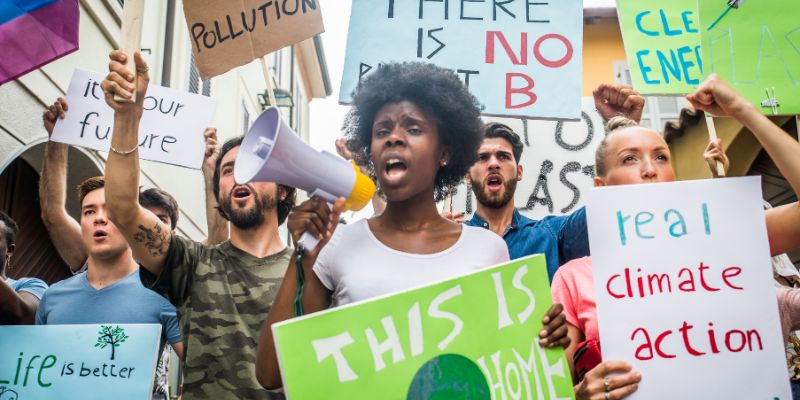
Climate change sceptics and climate activists are being urged to get together to try to find common ground as part of a study by the University of Leeds.
Researchers want to understand what divides people and what might bring them closer together and have partnered with the Daily Mirror newspaper for a project called “Britain Talks Climate.”
The emotional nature of the debate can put some people off but it’s important we find ways to talk about it and act on it.
Volunteers who sign up will be given the opportunity to have an online conversation with someone who thinks completely differently to them to see if they can persuade each other to change their minds or find areas of agreement. The conversations will be recorded and then analysed by the researchers.
Dr Lone Sorensen from the School of Media and Communication explained: “We want to find out what’s polarising people and how open discussions can bring people closer together and develop conversational strategies for bridging social and political divides.”
Climate culture war
The research is partly a response to what is being referred to as a climate culture war, with net zero sceptics protesting ultra-low emission zones on the one hand, and Just Stop Oil activists using controversial tactics such as vandalising paintings, on the other.
Volunteers will be asked to complete a quick questionnaire about their opinions on climate politics. They will then be invited to a conversation with another participant about one of the questions on which they disagree.
The Mirror intends to use some of the conversations in print and video form as part of its Britain Talks Climate feature series.
Dr Matthias Revers, an Associate Professor of Political Communication in the Leeds’ School of Media and Communication and joint project leader, explained that the research could have other applications: “Although we will be matching partners according to their differences in views on climate politics, we are also interested in wide-ranging conversations about any political and social issues that matter to participants.”
Difficult conversations
Dr Sorensen added: “We want to identify strategies for depolarizing difficult conversations that can help people both in the workplace and in everyday life, for instance when talking to friends and family about politics.
“Talking to people who have a different opinion from one’s own is a good thing. It helps us learn where people are coming from and find solutions that suit everyone. Especially when it comes to climate politics.
“The urgency and emotional nature of the debate can put some people off, but it’s important that we find ways to talk about it and act on it. We want to make it easier to cross divides and explore different opinions without worrying that conversations may escalate.”
The researchers believe their analysis of the discussions could ultimately help Britain to start a new and better conversation about climate change.
Further information
Anyone interested in taking part in the project can follow the link here for more information and access to the questionnaire
For media enquiries and/or interview requests, please contact Kersti Mitchell via k.mitchell@leeds.ac.uk